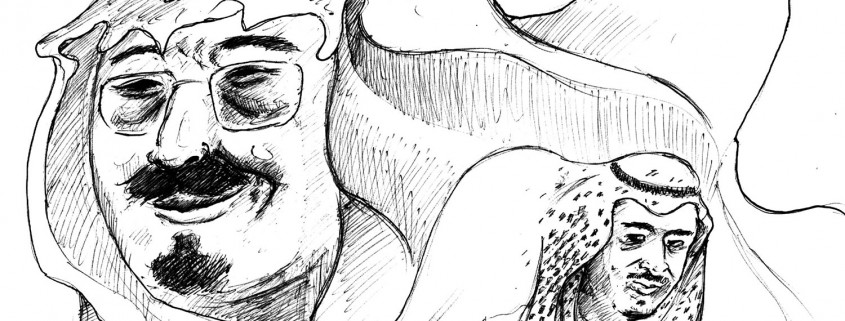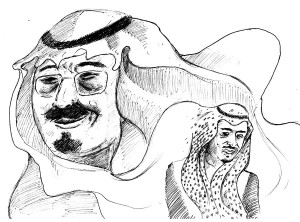King’s death brings continuity
Last week saw the end of the 10-year reign of King Abdullah bin Abdulaziz Al Saud of Saudi Arabia, who died at the age of 90. Despite the ostensible change in power, the monarchy in Saudi Arabia remains the same. That is to say, the status quo stays intact in the powerful Middle East nation.
King Salman, the 79-year-old newly anointed monarch, is a half-brother of the departed king and another son of the founder of the country. He is a member of the generation that has ruled the country for decades. The new crown prince, Muqrin bin Abdulaziz Al Saud, is also the half-brother of King Abdullah, and it is not until the deputy crown prince, Mohammed bin Nayef, that Saudi Arabia will begin to see a potential generational shift in power.
The status quo in Saudi Arabia and the policies that reflect such an era of power will not change until the monarchy sees a new generation and a fresh outlook on power. Saudi Arabia plays a strategic role in the Middle East. As an oil powerhouse, the country boasts enormous wealth and influence in the global economy. The death of King Abdullah did result in a slight spike in crude oil prices. In the long term, however, oil prices should continue to stay low as demand weakens in Europe and Asia and production ramps up in Western countries such as the United States. King Salman’s reign should see much of the same. With an abundance of wealth, Saudi Arabia is able to provide for its people. Education, healthcare, housing, food and a myriad of other necessities are easily paid for by the monarchy. Such a system in which the government supports all aspects of life mitigates any threat of revolution in the country. During the Arab Spring in 2011, Saudi Arabia was immune to any protests in the streets or serious calls to revolution. With a dispatch of rounds of aid, Saudi Arabians had no justification to voice concern. Saudi Arabia will continue to experience such a resistance to change and a continuity of authoritarianism under King Salman.
It’s not only the regional economy and political organization that will continue in this regime. Women’s rights, the distribution of wealth and treatment of minorities will only change with a parallel change in generation. The ancient regime in Saudi Arabia will continue to prevail with a policy of appeasement toward the people.
Many wonder when Saudi Arabia will transition to a more democratic form of government. It is unclear when it will begin to respect basic human rights or when women will gain a seat at the table in terms of civic involvement, or even when those not part of the royal family receive equal opportunity and a voice to express discontent. Surely the reign of King Salman will not begin to bring about transformational change.
Saudi Arabia has always represented an apprehension to change and an affinity for tradition in a region deeply rooted in its tempered past. True change in the country, if and when it arrives, will fundamentally alter the diplomatic dynamics of the Middle East in terms of geopolitical axioms and relations both within and outside the region.
A generational change is the only opportunity for change for the absolute monarchy. Time will tell if the deputy crown prince will take the throne and begin the brew of change.
The status quo will reign supreme until then, but in the meantime, Saudi Arabia will cling to continuity as a source of stability.
Athanasius Georgy is a sophomore majoring in economics. His column, “On the World Stage,” runs Thursdays.


